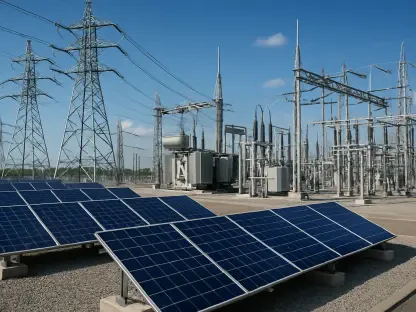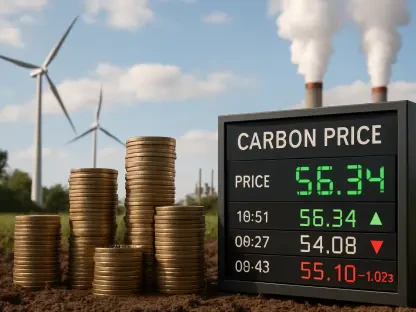In an era where environmental sustainability is a paramount concern, Sainsbury’s has implemented a groundbreaking plan to address food waste. Recognizing the detrimental impact of food waste, the British supermarket chain has opted to convert its waste into biofuel, thereby reducing its carbon footprint. This transformation marks a significant step towards promoting a circular economy and harnesses the expertise of RenEco, a waste processing company. Anaerobic digestion—a process that breaks down organic waste—is key to this initiative. The resulting liquid biofuel now powers a substantial portion of Sainsbury’s heavy goods vehicles, specifically those associated with the Emerald Park distribution center. Such innovations not only curtail reliance on conventional diesel fuel but also substantially decrease greenhouse gas emissions. Remarkably, Sainsbury’s anticipates preventing around 3,300 tons of carbon emissions annually as part of its commitment to net-zero operations by 2035. This endeavor exemplifies transformative corporate responsibility in tackling climate challenges.
Addressing Food Waste and Environmental Impact
Food waste remains an urgent global issue, contributing significantly to methane emissions as 95% of discarded food ends up in landfills. This environmental predicament has become a focal point for many organizations striving to reduce their carbon footprints. The United Nations Environment Programme’s Inger Andersen has repeatedly highlighted the serious socio-economic and environmental repercussions of unmanageable food waste. Sainsbury’s initiative showcases an innovative response to the prevailing climate concerns. An essential aspect of this scheme is the transformation of waste into biofuel, which not only reduces waste volumes but also utilizes the energy contained within the waste. This conversion provides an opportunity to rethink waste as a valuable resource rather than disposable refuse. Crucially, the process mitigates methane emissions, a potent greenhouse gas, thereby contributing considerably to reducing overall environmental impact. Sainsbury’s model illustrates how corporate strategies can adopt novel approaches to make a substantial impact on pressing environmental issues.
Corporate Responsibility and Collaboration
Sainsbury’s initiative is a testament to the transformative power of corporate responsibility and collaboration in driving meaningful environmental change. Industries are increasingly recognizing their potential influence in mitigating climate change through strategic innovation and cross-sector partnerships. By collaborating with RenEco, Sainsbury’s is setting a precedent for other corporations aiming to address environmental challenges through sustainable practices. Patrick Dunne, Sainsbury’s chief property and procurement officer, underscores the importance of such pioneering efforts, celebrating the achievements that stem from synergistic partnerships. This collaboration not only facilitates the achievement of Sainsbury’s sustainability goals but serves as a beacon of inspiration for other businesses to pursue similar paths toward circularity. Moreover, the broader industry trend indicates a shift as companies, like HelloFresh, join the movement, transforming waste into useful resources in a bid to enhance global sustainability efforts. This collective shift demonstrates the power of collaborative ventures in paving the way for an environmentally sustainable future.
Concluding Insights on Sustainable Practices
As environmental sustainability increasingly becomes a priority, Sainsbury’s has devised an innovative strategy to combat food waste. Recognizing its harmful effects, the British supermarket has chosen to transform food waste into biofuel, thereby cutting down its carbon emissions. This initiative represents a notable advancement towards fostering a circular economy, leveraging the knowledge of RenEco, a waste processing firm. Utilizing anaerobic digestion—a process that decomposes organic waste—is central to this venture. The biofuel produced now energizes a substantial share of Sainsbury’s large transport vehicles, particularly those linked to the Emerald Park distribution center. This approach not only reduces dependency on traditional diesel but also significantly lowers greenhouse gas emissions. Impressively, Sainsbury’s expects to prevent roughly 3,300 tons of carbon emissions annually, aligning with its dedication to achieving net-zero operations by 2035. This effort showcases transformative corporate responsibility in facing climate challenges.









